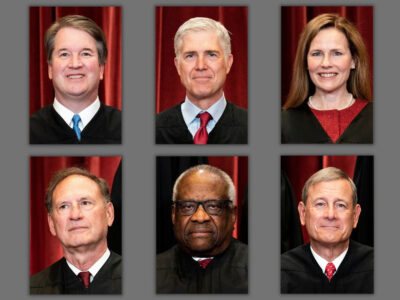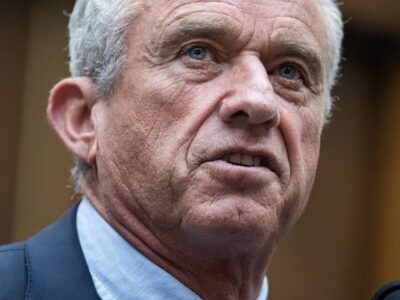How Did Alaska Avoid the Resource Curse? Can Anyone Else Do So?
 Dan made a useful point the other day about the possibility that increased energy production could yield a resource curse, i.e. an increase in unproductive and oligarchical rent-seeking when an economy becomes based upon resource extraction. One might add that this rent-seeking also tends to underdevelop a country’s human capital, as it has in Saudi Arabia: a nation’s leaders can simply buy off the population with partial rent payments instead of trying to make them and the country more productive.
Dan made a useful point the other day about the possibility that increased energy production could yield a resource curse, i.e. an increase in unproductive and oligarchical rent-seeking when an economy becomes based upon resource extraction. One might add that this rent-seeking also tends to underdevelop a country’s human capital, as it has in Saudi Arabia: a nation’s leaders can simply buy off the population with partial rent payments instead of trying to make them and the country more productive.
But possibilities are hardly sure things. And here in the United States, we actually have a good example of the resource curse not occurring: the Alaska Permanent Fund.
Alaska, of course, relies heavily upon oil production as the basis of its economy. But instead of this wealth going to a few oligarchs, the state has established a Permanent Fund. The Earth Rights Institute explains:
In 1976 voters approved a constitutional amendment, proposed by Governor Jay Hammond and modified by the legislature, which stated that at least 25% of all mineral lease rentals, royalties, royalty sale proceeds, federal mineral revenue-sharing payments, and bonuses received by the State shall be placed in a permanent fund, the principal of which shall be used only for those income-producing investments specifically designated by law as eligible for permanent fund investments.
The Permanent Fund’s management is crucial: the Alaska Permanent Fund Corporation is a public, state-owned corporation, with trustees appointed by the Governor and approved by the Legislature, whose job it is to supervise the Fund’s investments and maintain its fiscal and accounting integrity.
It appears to have worked brilliantly. The Fund collects millions of dollars every year, and despite the pleas of Alaska’s politicians, it usually distributes a “dividend” to every Alaskan each year depending upon revenue. I might argue that it is better to spend the money on public goods, but the point is that the Alaskan public has decided it according to its wishes, not according to corrupt and oligarchic politicians.

All very well and good. But it doesn’t really answer the question: how did it happen politically? Any corrupt government can set up any number of “public corporations” that proceed to steal public assets into private pockets.
The answer appears to lie in those informal institutions of governance that ensure that some things “just aren’t done”. Elites agree to resist the temptation for political and/or economic advantage in order to make the system work. You don’t play around with the Permanent Fund’s books. You don’t declare that the Fund is out of money when it isn’t. If you do, then the DA or the Attorney General will not look the other way when you offer her a bribe. These social norms are actually enforced. How does that happen?
We don’t really have a good answer to this question. Daron Acemoglu and James Robinson have made a big splash recently by insisting that nations succeed because of better political and social institutions, but they fail to answer the more fundamental question of why some nations have better institutions than others. The critical informal institutions are hard to start and easy to destroy. As I have noted here and elsewhere, part of the modern Republican Party’s ideological agenda is to destroy these norms in order to make government dysfunctional. So it will be very difficult to create and preserve them in the United States.
But we are going to have to find out. The next test case, I think, will be in North Dakota, where a “staggering” oil bonanza is already transforming politics. Rapid increases of natural gas production from fracking could cause similar developments. We’d better start figuring it out now, or in a few years we might wondering how the United States has failed.
Reader Comments
4 Replies to “How Did Alaska Avoid the Resource Curse? Can Anyone Else Do So?”
Comments are closed.








The Alaska example is really interesting and deserves closer examination. (Severance taxes are major funding sources in other states
The Alaska example is really interesting and deserves closer examination. (Severance taxes are major funding sources in other states
I think these questions are really interesting. If you ever look into this more, it might be enlightening to expand your study from the 49th state to the 50th (Hawaii). Hawaii doesn’t have mineral resources, but it has escaped the analgous “Banana Republic” curse, possibly for the some of the same reasons Alaska escaped the resource curse.
The industrial success and democratic insitutions of the mainland U.S. was largely created by a republic of yeoman farmers who owned small homestead lots in the Ohio valley, and later, across the Great Plains and into the Oregon territory. You can make a pretty convincing case that plantation societies where a colonial elite controlled huge parcels worked by masses of impoverished and disenfranchised laborers don’t follow the same development path — specifically, they don’t develop the middle class demand needed to kindle industrialization and they don’t develop the democratic political structures that represent the interests of the population as a whole. Rather, they often languish as “Banana Republics” governed for the benefit of a few.
If you look at the history of Hawaii to 1945, you will see that everything looks a lot more like the history of the Caribbean, Central America, and certain tropical areas of Asia than the mainland U.S. Even on the eve of World War II, much of the population lived on plantations, were educated in special, dumbed-down schools, did not own land, and could not vote. Yet after World War II, and especially after 1959, Hawaii rapidly reinvented itself as a middle class, consumer economy run by the elected children and grandchildren of exploited plantation laborers.
I have know why a certain type of economy and politics apparently foreign to an area’s history could take root so quickly and overwhelmning in Hawaii but not in other similar places. I’m tempted, however, to say it has to do with the thoroughness of U.S. imperialism, and that the same could be said of Alaska.
I think of Ted Stevens here–it was federal agents with careers outside of Alaska that went after him for corruption; if Alaska were its own country, a powerful leader might have been able to avoid such prosecution.
I think these questions are really interesting. If you ever look into this more, it might be enlightening to expand your study from the 49th state to the 50th (Hawaii). Hawaii doesn’t have mineral resources, but it has escaped the analgous “Banana Republic” curse, possibly for the some of the same reasons Alaska escaped the resource curse.
The industrial success and democratic insitutions of the mainland U.S. was largely created by a republic of yeoman farmers who owned small homestead lots in the Ohio valley, and later, across the Great Plains and into the Oregon territory. You can make a pretty convincing case that plantation societies where a colonial elite controlled huge parcels worked by masses of impoverished and disenfranchised laborers don’t follow the same development path — specifically, they don’t develop the middle class demand needed to kindle industrialization and they don’t develop the democratic political structures that represent the interests of the population as a whole. Rather, they often languish as “Banana Republics” governed for the benefit of a few.
If you look at the history of Hawaii to 1945, you will see that everything looks a lot more like the history of the Caribbean, Central America, and certain tropical areas of Asia than the mainland U.S. Even on the eve of World War II, much of the population lived on plantations, were educated in special, dumbed-down schools, did not own land, and could not vote. Yet after World War II, and especially after 1959, Hawaii rapidly reinvented itself as a middle class, consumer economy run by the elected children and grandchildren of exploited plantation laborers.
I have know why a certain type of economy and politics apparently foreign to an area’s history could take root so quickly and overwhelmning in Hawaii but not in other similar places. I’m tempted, however, to say it has to do with the thoroughness of U.S. imperialism, and that the same could be said of Alaska.
I think of Ted Stevens here–it was federal agents with careers outside of Alaska that went after him for corruption; if Alaska were its own country, a powerful leader might have been able to avoid such prosecution.